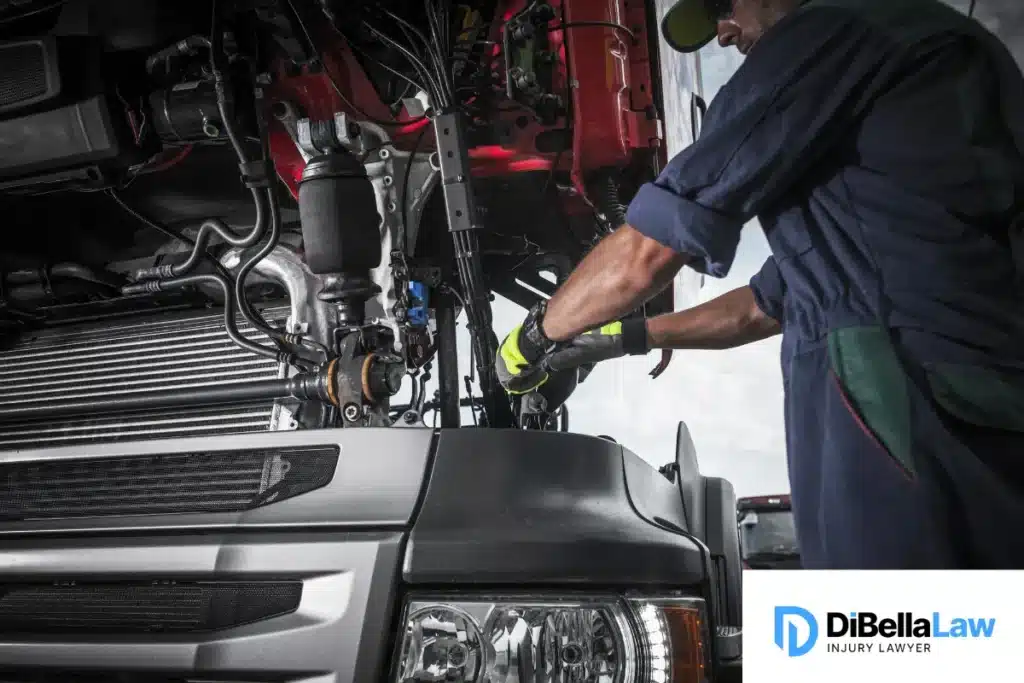Commercial truck accidents can cause devastating harm with complicated legal implications throughout the process. Various parties may share liability, from individual drivers to corporate entities to product manufacturers. A Burlington truck accident lawyer can help determine liability so you can attempt to seek compensation
Parties that Can Potentially Be Held Liable
There are several parties that may share liability when a commercial truck accident occurs. The truck driver is typically the first party to be held responsible if they were negligent or violating regulations. Trucking companies also have a duty to properly train drivers, maintain vehicles, check driving records during hiring, and establish safety policies. Manufacturers and mechanics could potentially be held accountable if vehicle defects or maintenance issues contributed to causing the crash.
The motor carrier or trucking company may also be held liable for a commercial truck accident through the legal doctrine of vicarious liability. This means the company can be held responsible for the negligent actions of its employee drivers taken within the scope of employment. Trucking companies also have an independent duty to ensure drivers are properly qualified, screened, trained, and supervised.
Product liability may also come into play if issues with the commercial truck itself contributed to the accident. For example, a defective brake component that malfunctioned could leave the designer, manufacturer, or mechanic who last serviced the vehicle open to liability claims. Plaintiffs may argue those parties acted negligently or breached an implied warranty by selling or servicing a truck with a dangerous defect.
Evidence Needed to Determine Liability
Black box data showing speed, braking patterns, and other driver behaviors leading up to the crash is invaluable. Maintenance records, inspection reports, training logs, and policies will help assess if the trucking company met safety duties. Medical reports document injuries, while crash scene photos and measurements recreate what happened.
Eyewitness statements or interviews provide critical first-hand accounts of how the collision occurred. They may articulate dangerous maneuvers by the truck driver or other motorists, describe vehicle defects like blown tires, or recall specific weather hazards before the crash. Traffic cameras or nearby surveillance videos may actually capture footage of the accident as it happened.
Records related to the qualification and credentialing of the truck driver may also be requested. This includes medical assessments, driving history, training courses completed, drug test results, and personnel files. The goal is to determine whether the driver should have been permitted behind the wheel in the first place.
When Multiple Parties Are at Fault for the Accident
It is common for commercial truck accident investigations to reveal multiple liable parties with varying degrees of responsibility. For example, the truck driver may have been distracted or fatigued, but the trucking company also failed to implement adequate telematics monitoring. Scheduling policies should have prevented an overtired operator from driving.
In such multi-party liability scenarios, states apply different comparative negligence rules to determine financial accountability. Some follow “pure comparative negligence,” which allows an injured plaintiff to recover damages even when mostly at fault, but the award is reduced by their percentage of fault. Other states bar recovery unless the plaintiff’s negligence level was below a specified threshold.
It is also possible the truck driver and motor carrier are found partially negligent, but product liability against the truck manufacturer accounts for the largest share. Sorting out respective levels of fault requires thorough legal analysis, especially when multiple parties have a part to varying extents. An attorney understands this complexity and will actively identify all potential avenues to pursue maximum compensation.
What to Do When It Is the Company, Not the Driver at Fault
If investigations determine the truck driver acted reasonably, but the crash fault lies with the motor carrier, it is still important to pursue compensation. Negligent hiring, training supervision, or vehicle maintenance by the company may warrant substantial liability regardless of operator conduct. Legal options would include filing a direct lawsuit against the trucking company.
Their insurance provider would likely get involved to handle a settlement, but courts can determine awards if necessary. A case can argue past safety violations, inadequate policies, insufficient driver oversight, and other company shortfalls grossly compromised public safety. A lawyer will know how to build arguments highlighting systematic, institutional flaws versus targeting only individual driver mistakes.
With legal representation, you can create an approach to maximizing potential recovery by pinpointing the specific duties the trucking outfit neglected. Even when a driver attempted their best efforts, companies must still be held accountable if their cost-cutting or negligent management precipitated hazardous conditions leading to crashes. By exploring the full range of liability sources rooted in corporate failure, you may secure fair compensation.
Potential Types of Damages You Can Claim
There are both economic and non-economic damages that can be sought after a commercial truck accident caused by negligence or misconduct. Economic damages aim to cover quantifiable losses like medical bills, lost wages from missed work, and repair or replacement costs for damaged property. Non-economic claims address pain and suffering, loss of companionship or consortium, and emotional distress.
The full spectrum of current and future economic impacts should be considered when calculating potential claim value. This includes ongoing treatments, rehabilitation services, lost income streams, and diminished earning capacity if disabilities cannot be overcome. Expert economists can accurately project lifetime costs related to permanent disabilities that may never fully stabilize.
Non-economic losses are highly variable and subjective but deeply affect the quality of life. Physical pain, discomfort, and loss of enjoyment of regular activities all deserve fair compensation. Severe crashes also often involve significant mental anguish, anxiety, or depression that merits recovery.
Get Help from a Truck Accident Attorney
If you or a loved one got hurt in a truck accident, contact our experienced Boston truck accident lawyers immediately. Allow us to guide you and fight to potentially get all responsible parties fully accountable as we seek maximum compensation on your behalf. Contact us for a free consultation to see what move we should make next.
